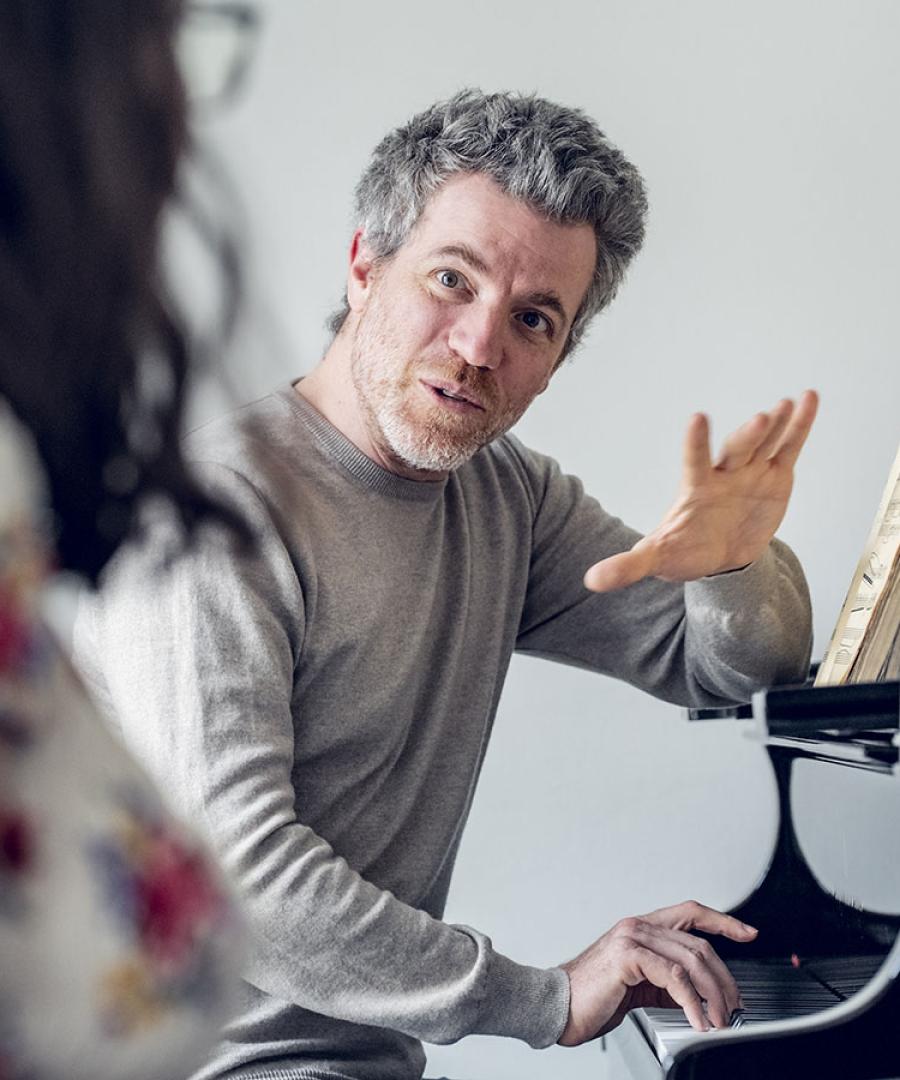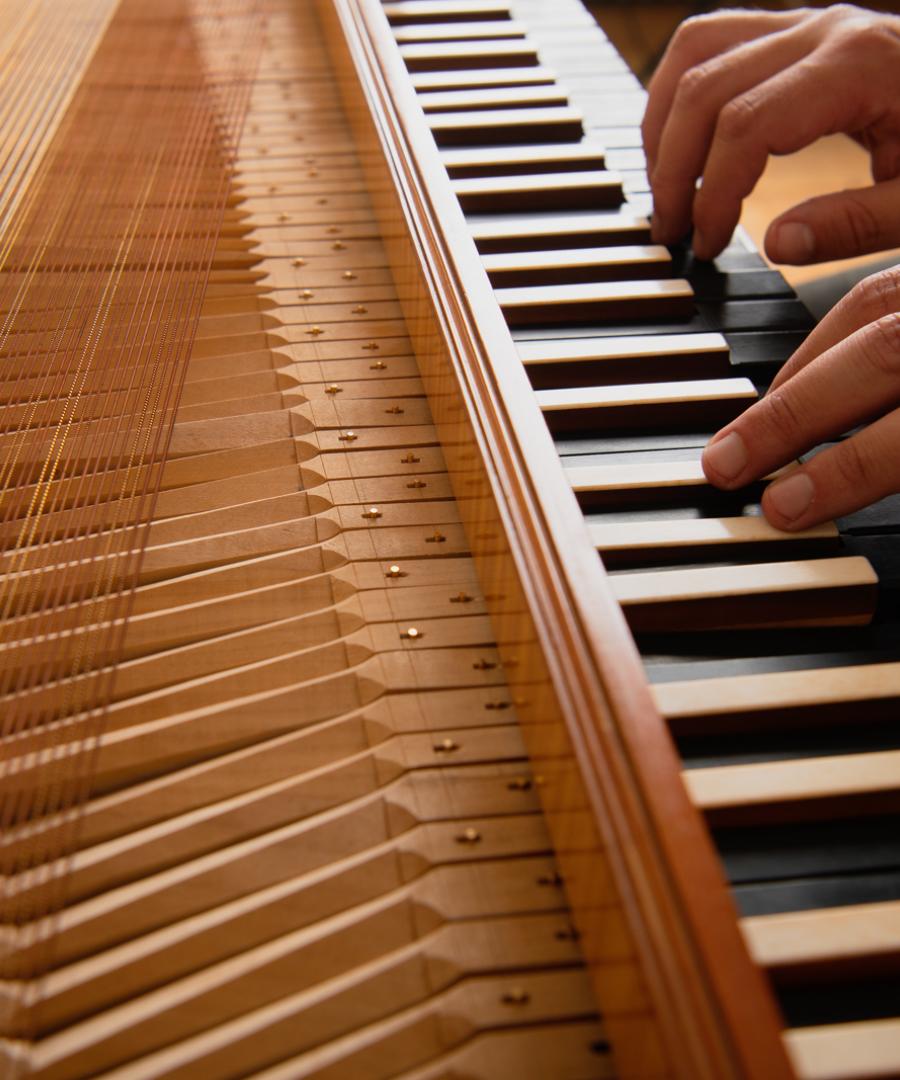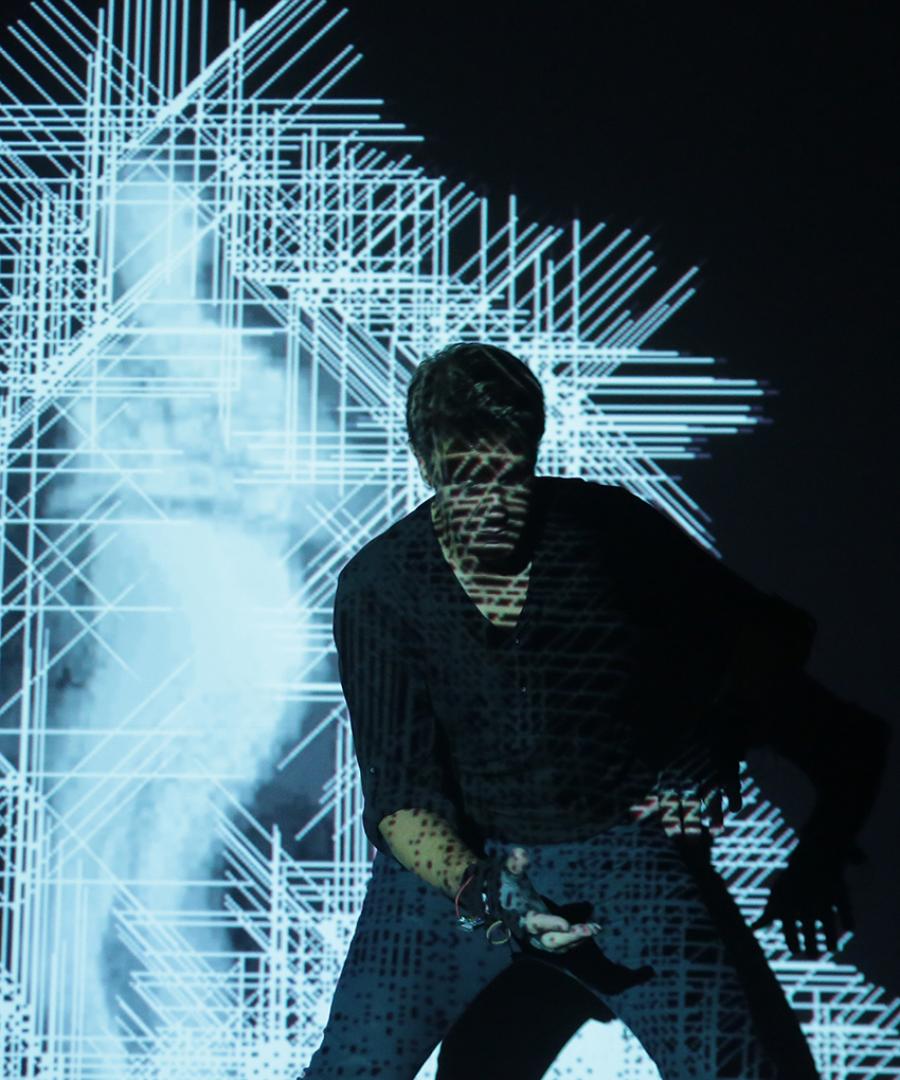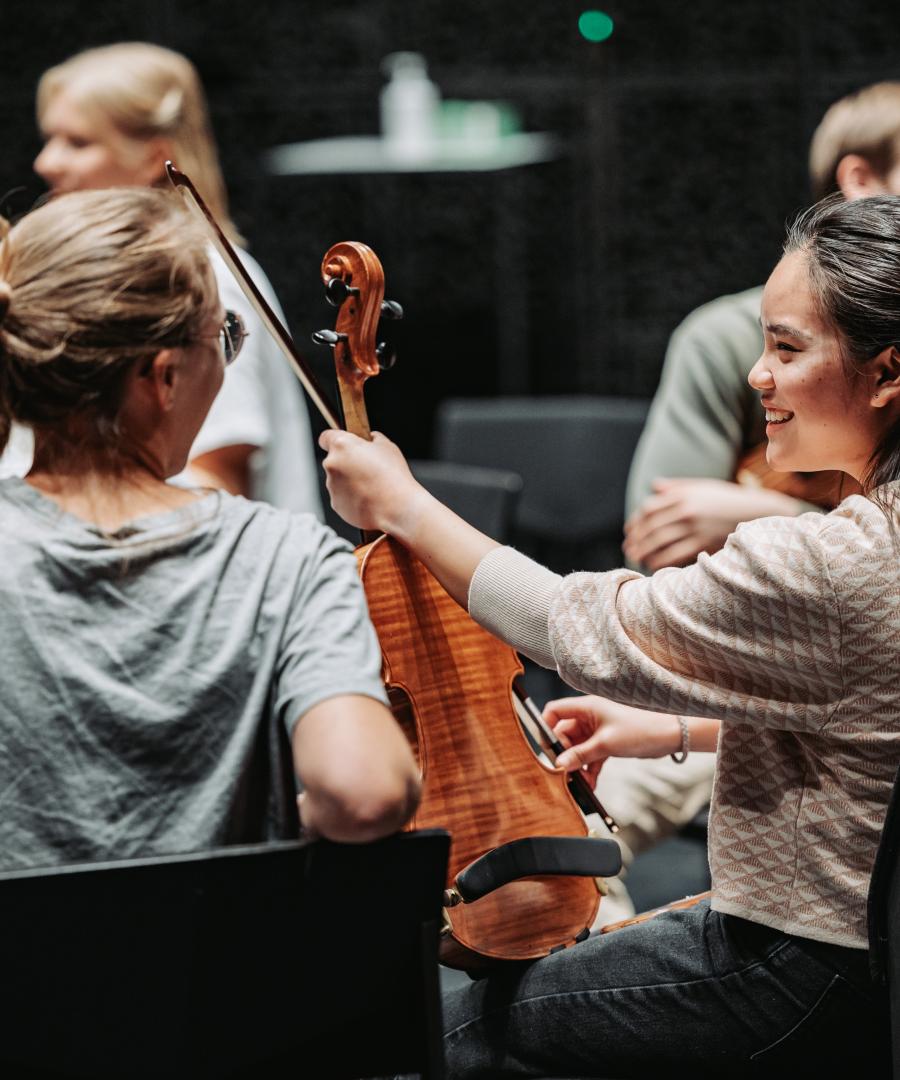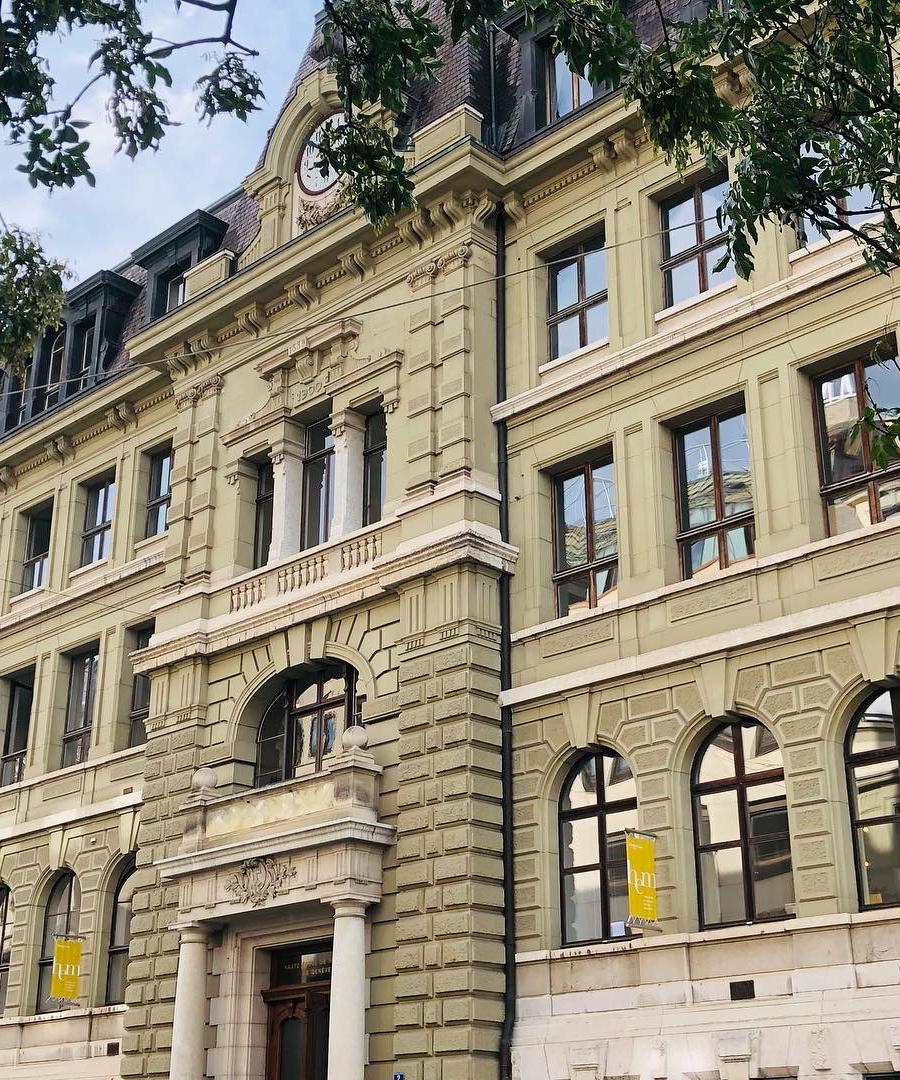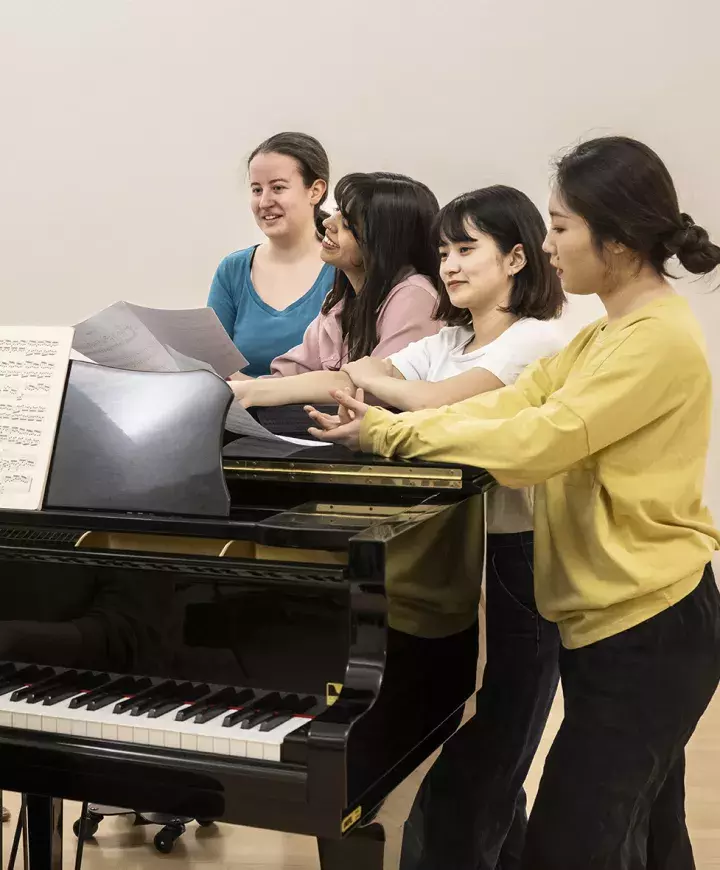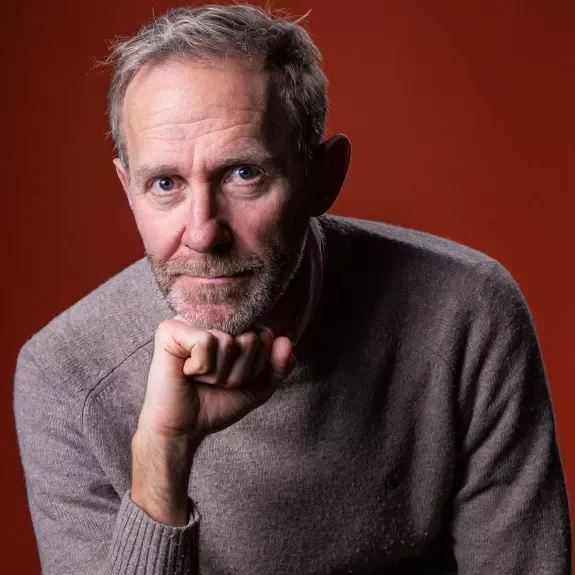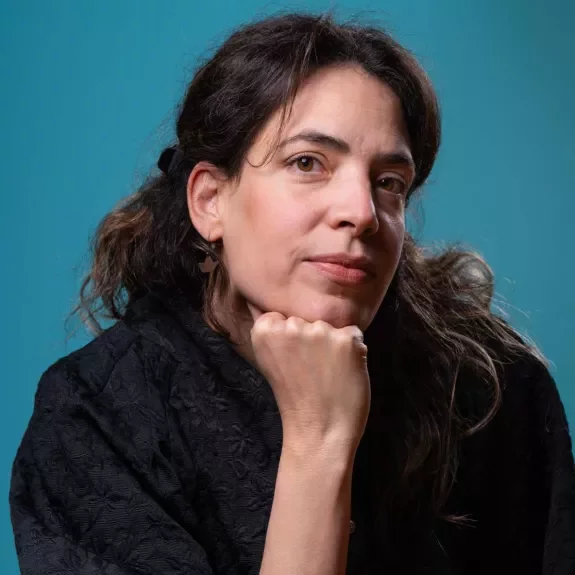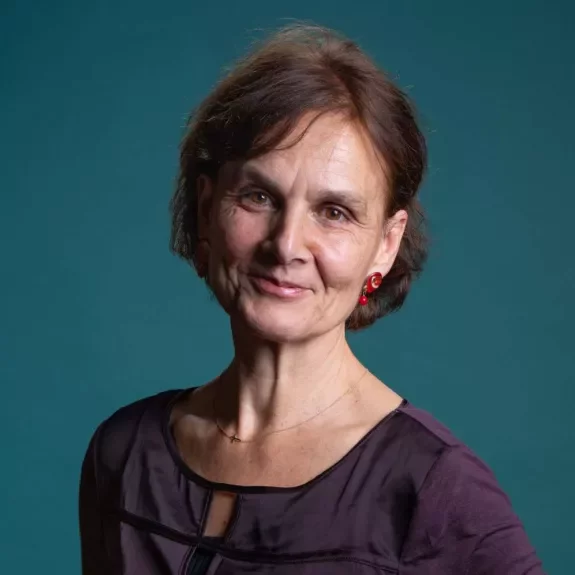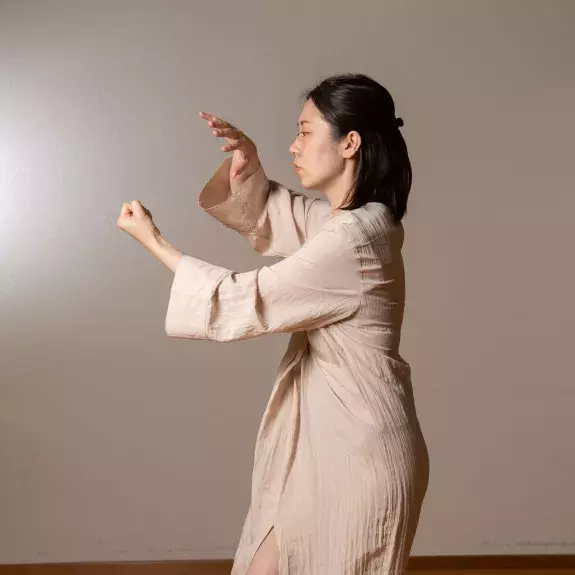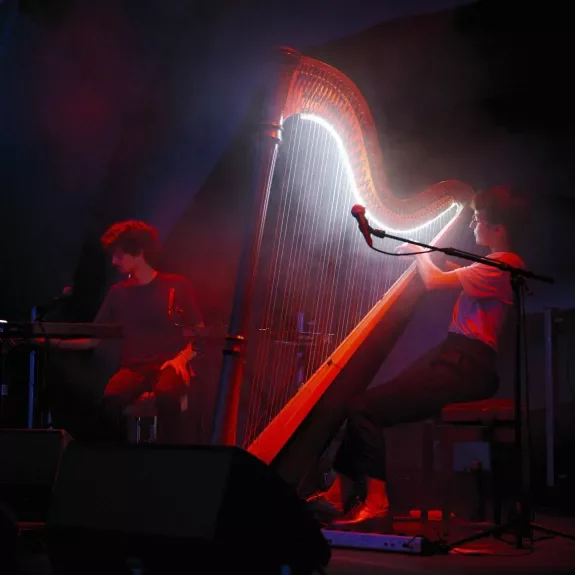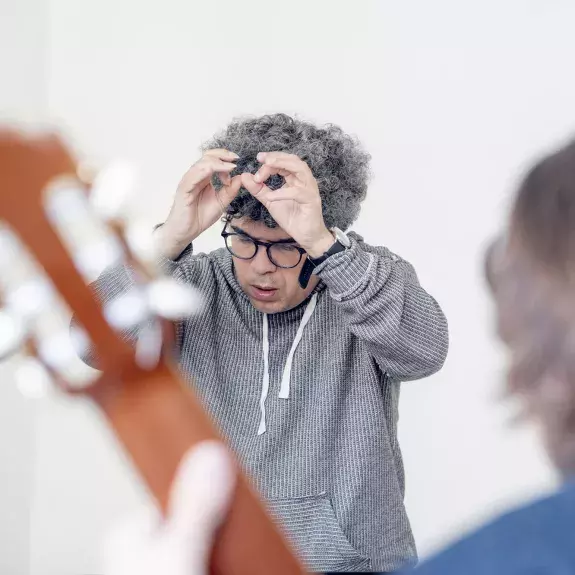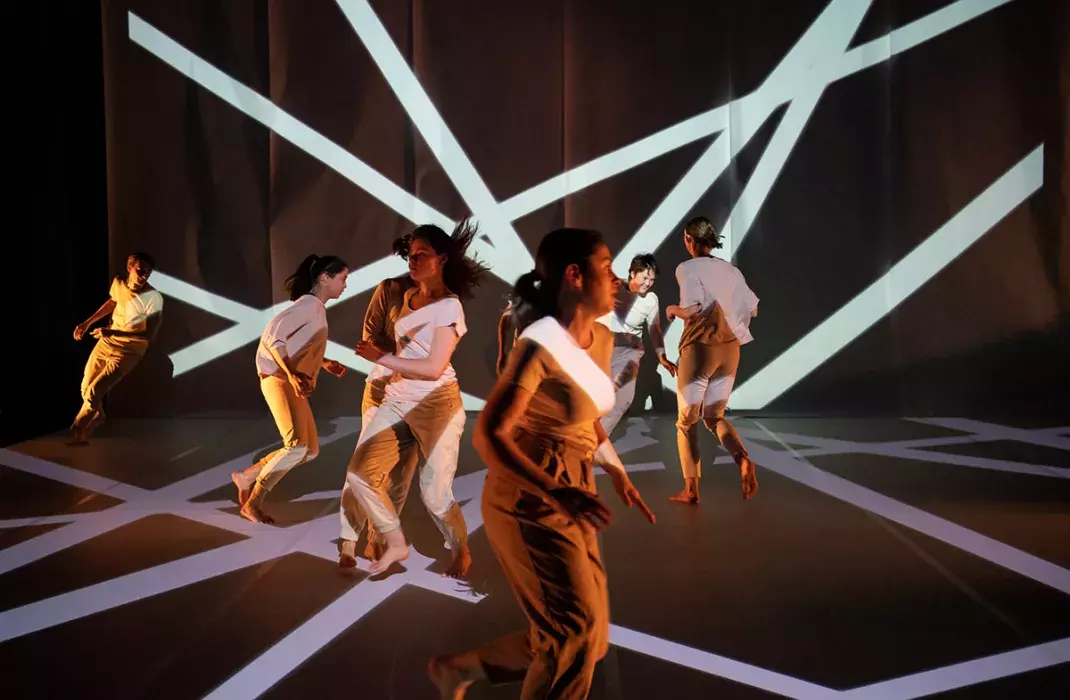Pablo Ernesto
Cernik
Professor of Keyboard Harmony and Jaques-Dalcroze Writing - Instrumental Improvisation - Physical and Mental Preparation: Bodily Approach to Music through Jaques-Dalcroze Eurhythmics - Jaques-Dalcroze Eurhythmics - Jaques-Dalcroze Solfège
Pablo Cernik is currently employed as an adjunct professor, teaching in the Bachelor’s degree, Master’s degree, and CAS programs in the Music and Movement Department at the Haute école de musique de Genève (HEM). He collaborates with the department's administration on tasks related to the visibility of the programs and also with the Institut Jaques-Dalcroze in coordinating the Diplôme Supérieur.
He is the director of the Dalcroze Certificate programs in Italy, Spain, Chile, and Argentina. He has significantly contributed to the dissemination of the method by conducting workshops and conferences in various regions and countries across Europe, Asia, and Latin America. As an opera, chamber music, and dance pianist, his presentations have placed particular emphasis on multidisciplinary creation. He is currently pursuing a PhD in Arts at the Universidad Nacional de las Artes (UNA) in Buenos Aires. He is a member of the Jaques-Dalcroze College and the central committee of the International Federation of Eurhythmics Teachers (FIER). He is also the president of the Dalcroze Association of Argentina.
Tamaé
Gennai Deveaud
Professor of Instrumental Improvisation - Jaques-Dalcroze Eurhythmics - Jaques-Dalcroze Solfège
Tamaé Gennai was born in Geneva, where she began her musical training at the Institut Jaques-Dalcroze from a young age. In 2007, she graduated with a Master of Arts (Jaques-Dalcroze Pedagogy, receiving the Conseil d’Etat Prize and the Institut Jaques-Dalcroze Prize). She continued her studies in solfège and counterpoint at the Haute école de musique de Genève, obtaining her advanced solfège certificate in 2008. She furthered her piano and pedagogical training with Robert Kaddouch in Paris.
Tamaé teaches music and movement to diverse audiences (parents-children, adolescents, seniors, the psychiatric department of HUG, etc.), and in 2019, she received the Diplôme Supérieur in the Jaques-Dalcroze method, allowing her to teach the method to professionals. On this occasion, she was awarded the Aletheia Foundation Prize for her group choreography. She teaches eurhythmics, solfège, pedagogy, improvisation, and performance creation at the Haute Ecole des Arts de Berne. Since 2021, she has also been teaching regularly in Bucharest.
In addition to her career as a pedagogue and teacher, Tamaé performs as a musician and singer on stages in Switzerland, France, and Sweden with singer and guitarist Jackson Wahengo (traditional music of Namibia) and writes and directs numerous multidisciplinary shows (music, dance, theater) with the Compagnie TaMiErO. In 2019, she was awarded a writing grant from the Swiss Society of Authors for her children's show "L’enfant do," which was premiered at the Petit Théâtre de Lausanne.
Dedicated to linking her stage and pedagogical skills to serve audiences with limited access to the arts, she has created several performance projects in the slums of Kolkata and Mumbai, in Geneva's Villas Yoyo, and within the creativity workshops of the IJD.
Learn more about Tamaé Gennai Deveaud.
Pascale
Rochat-Martinet
Professor of Experimental Workshop: Applied Pedagogy - Keyboard Harmony and Dalcroze Writing - Instrumental Improvisation - Improvisation for Movement and Teaching
Holder of the advanced diploma from the Institut Jaques-Dalcroze, Pascale Rochat-Martinet furthered her education with choral conducting studies in Paris, classical singing at the Conservatory of Lausanne, and training for seniors at the Institut Jaques-Dalcroze. She is also involved in the creative group "Aldente," which combines music, theater, and movement. Passionate about pedagogy, she has created numerous rhythmics-solfege courses at the Conservatory of Lausanne, leading her students to certification.
Currently, she teaches piano improvisation, rhythmics, and solfege at the Haute école de musique de Genève (HEM) as well as at the Haute école de musique de Lausanne (HEMU). Her teaching is directed towards rhythmicians, future piano teachers, and concert performers. She is regularly invited to teach at international higher education institutions and universities.
Always seeking to refresh and renew her teaching methods, she has undertaken jazz piano studies. Improvisation being her specialty, she also practices this discipline in various fields: organ improvisation, accompanying Gospel singers, and creating music for podcasts.
Her artistic journey is rich, varied, and eclectic. Pascale Rochat-Martinet loves to share her joy of music with everyone, without distinction.
